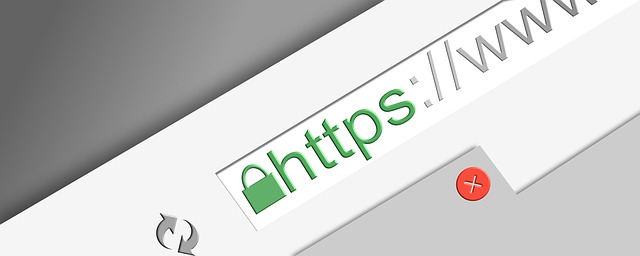If the profits from cybercrime where to be quantified, it would rank as the 13th GDP in the world. Cybercrime is a low-cost, low-risk and high-yield venture.
The liberal attitude that most naive users have towards sharing personal data also makes it easy for hackers to carry data heists.
Alarmed by all these developments and also motivated by a social responsibility to make the Internet a safer place, giants of the IT industry like Google, Microsoft, Apple, WordPress and the who is who of the internet are betting on HTTPS.
Hyper Text Transfer Protocol Secure (HTTPS) is a secure version of HTTP. The ‘S’ in HTTPS means that the exchange of information is encrypted with the help of an SSL certificate.
For any website owner, all this might seem like a bit over the head. Let’s simplify things. Let’s begin with understanding what an SSL certificate is.

What is an SSL certificate?
An SSL certificate is a small-sized data file that contains cryptographic keys that encrypt the information sent and received by a website.
They also carry out the task of digitally binding an organization’s details that a user interacting with the website would want to know — like the domain’s owner name, location, the name of the Certificate Authority (CA) issuing the certificate and so on.
Why do you, as a website owner, need an SSL certificate?
You need a SSL certificate for two purposes:

1. For you: To ensure the safety and security of your blog
Right now, there is no website in the world which can call itself completely safe.
Blogs are one step lower in terms of security compared to websites. They are usually created by amateurs and hobbyists. But, they do have a huge fan following which makes them ideal targets for hackers.
Also, bloggers do not invest time or money to safeguard themselves from cybersecurity threats.
But, the alarming rate at which cybercrime is increasing means you need to put up defenses for your blog with a SSL certificate.
2. For your visitors: To show them that your website is trustworthy
Does your blog sell anything? Or, do you collect any kind of payment from your blog visitors?
In either case, you need to establish a sense of trustworthiness in the minds of your visitors.
You need to show them that their personal information, financial transactions, and other critical information are kept safe from being stolen or misused. And to achieve that purpose, you need an SSL certificate.
The 4 benefits of having an SSL certificate
Apart from serving the aforementioned two purposes, as a blogger, a SSL certificate also gives you several benefits, some of which are discussed below:
1. SEO Advantage
HTTPS is a serious ranking signal that Google considers for ranking web pages.
In fact, in Google I/O 2014, it even called for an HTTPS everywhere on the web to reduce the number of unencrypted data exchanges.
Let’s do a simple experiment to confirm matters.
Just run a random search query and take a look at the first page SERPs. You will notice that they are all web pages that have HTTPS.
In other words, if you want your blog posts to rank higher in search results, your blog must have the HTTPS.
2. Positive Labeling
According to Net Market share, Chrome occupies 65 percent of the web browser market compared to other players like Firefox, Internet Explorer, Edge, Safari and the likes.
So it makes sense to play by the rules that Google Chrome lays down. Google released the Chrome 68 release in July 2018. With this release, Google will start marking all HTTP websites as “not secure”.
Needless to say, even the slightest indication of these sorts can chase your blog visitors away or have a detrimental effect on your blog conversions.
3. GDPR Compliance
In April 2016, the European Union enacted the GDPR (General Data Protection Regulation). The regulation puts into place strong laws that protect user rights of data protection and privacy.
The regulation also lays down how data collectors should inform, collect and store user data.
As a blogger who collects cookies from visitors, it is imperative that you follow the regulation as well.
Failing to adhere to the regulation can cause you damage — like a penalty of 4 percent of global turnover or 20 million US Dollars.
With the reputation and financial loss at stake, a GDPR non-compliance should be the last thing you want in your plate.
HTTPS ensures that you are playing by the rules set by GDPR regulation. It ensures that you have taken the necessary steps to prevent any kind of data loss or theft of visitors.
4. Tightened Security
At the end of the day, the prime benefit and also the purpose of an SSL certificate is to protect your website and your users from any kind of cybercrime.
As an encryption technology, it prevents hackers from eavesdropping and taking hold of any data that is not supposed to go public.
Also, it ensures that the user is able to vouch for the genuinity of the website with which he or she is sharing sensitive information.
Also, SSL certificates come in various forms, including multi-domain and wildcard SSL certificates which help secure multiple domains with a single SSL certificate.
Whether you are a professional blogger or someone who is handling the blog of an enterprise, you need an SSL certificate to protect yourself from the perils of the internet.

The Ideas Plus Business Editorial team is responsible for this post. For collaborations and partnership requests, kindly send an email to the Editorial Team at ideasplusbusiness[at]gmail[dot]com for the terms and conditions. You can also follow IdeasPlusBusiness.com on Twitter here and like our page on Facebook here.

